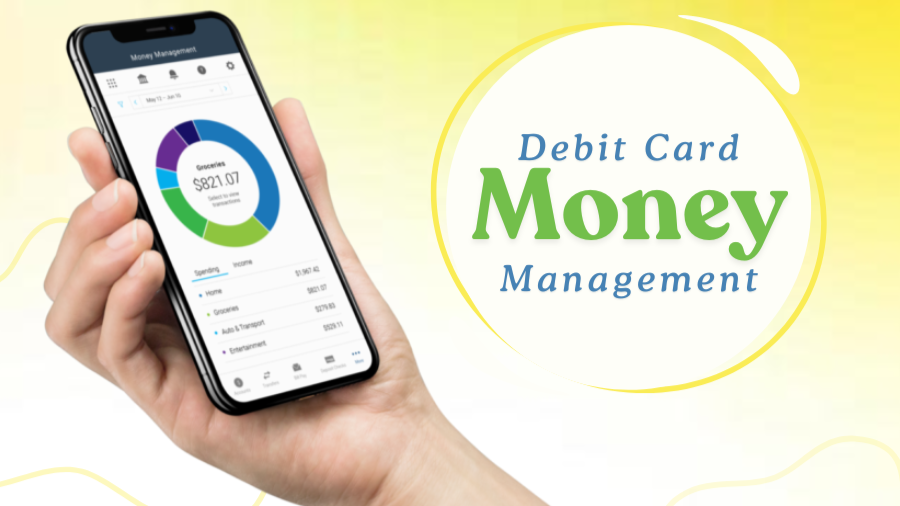New Financial Year: Smart Debit Card Tips to Save More

 Aruna Singh
Aruna Singh
Start the new financial year right! Discover smart debit card tips, avoid common debit card mistakes, and maximize your savings with simple strategies.
A new financial year in India isn’t just about tax planning—it’s a great time to rethink your spending habits! Whether it’s managing monthly expenses or saving on everyday transactions, your debit card plays a bigger role than you realize. With UPI payments, online shopping, and ATM withdrawals, it’s easy to overlook fees and missed savings opportunities. But small changes can help you save more!
In this blog, we’ll break down smart debit card tips, highlight common debit card mistakes, and show you how to make the most of your money this financial year—without unnecessary charges eating into your budget.
Why the Financial Year Reset Matters for Your Finances
Ever wondered why businesses reset their budgets at the start of a financial year? It’s because fresh beginnings offer a chance to reassess and improve—and the same applies to your personal finances. This is the perfect time to set smarter money goals, cut unnecessary expenses, and build better spending habits.
A small yet powerful change? Optimizing your debit card usage! Since it’s your go-to for daily expenses, ensuring you use it wisely can significantly impact your savings. Choosing cards with cashback, tracking transactions, and avoiding unnecessary charges are simple steps that can help.
However, many people fall into common debit card mistakes, like ignoring hidden fees or overspending without tracking. This year, take control—review your spending, find a debit card that matches your needs, and make smart financial decisions that keep your budget in check.
Avoid These Debit Card Mistakes
A debit card makes everyday transactions easy, but are you using it wisely? As the financial year begins, it’s time to review your spending habits and avoid common debit card mistakes that could be silently draining your savings. A few simple tweaks can help you save money, avoid unnecessary fees, and keep your finances secure.
1. Ignoring Hidden Fees
Many people assume using a debit card is free, but banks often charge hidden fees. Monthly maintenance charges, ATM withdrawal fees (especially from non-network ATMs), and transaction charges on international payments can add up over time. The best way to avoid this? Read your bank’s fee structure carefully and opt for debit cards with zero annual charges or free ATM withdrawals.
2. Not Tracking Small Transactions
A quick coffee, a few online subscriptions, or a UPI payment for groceries—these small expenses seem harmless but add up fast. Before you know it, a significant chunk of your monthly budget is gone. A smart way to manage this is by setting up spending alerts on your banking app and reviewing your statement regularly. Many apps now categorize spending, making it easier to track where your money goes.
3. Overlooking Security Measures
With digital transactions on the rise, card fraud is a growing concern. Skipping basic security measures like enabling transaction alerts, using virtual debit cards for online shopping, or setting daily limits can put your money at risk. Always enable two-factor authentication and avoid sharing your card details over calls or messages. A little precaution can save you from financial fraud.
4. Using a Debit Card for All Purchases
While a debit card is great for managing spending, relying on it for everything isn’t always the best choice. Unlike credit cards, debit cards don’t offer purchase protection, extended warranties, or reward points. For high-value purchases or travel bookings, a credit card might be a better option. Use your debit card wisely—stick to everyday expenses and bill payments where it makes sense.
Smart Debit Card Tips to Save More
While we rely on it for everyday transactions—whether for online shopping, UPI payments, or ATM withdrawals—many of us miss out on opportunities to save more. Small changes in how you use your card can lead to better financial management and fewer unnecessary expenses.
Here are some smart debit card tips to help you maximize savings this year:
1. Set Up Automated Savings
One of the easiest ways to build savings without effort is by linking your debit card to an auto-transfer savings account. Many Indian banks allow you to set up an automatic transfer where a fixed amount moves to your savings every month. This ensures you save before spending, helping you build an emergency fund over time.
2. Track & Categorize Expenses
Well! Tracking expenses is crucial. Most banking apps provide spending insights, showing where you spend the most. Categorizing your transactions—groceries, dining, subscriptions—helps identify areas where you can cut back. Using a debit card for transactions also gives you a clear digital trail, making it easier to budget effectively.
3. Leverage Debit Card Cashback & Rewards
Many people assume cashback and rewards are exclusive to credit cards, but that’s not true! Several banks offer debit card cashback programs, discounts on food delivery, fuel surcharge waivers, and exclusive deals on e-commerce platforms. Before making a payment, check if your card has any offers—it’s an effortless way to save on everyday expenses.
4. Use Budgeting Tools
Budgeting can feel overwhelming, but modern banking apps simplify the process. Many Indian banks provide in-app budgeting tools that track expenses, set spending limits, and send alerts when you’re close to exceeding your budget. These tools, combined with a debit card, help you stay on top of your finances without needing to maintain spreadsheets manually.
Summing It Up
As the financial year begins, it’s the perfect time to take a closer look at how you use your debit card. Small changes—like tracking expenses, avoiding hidden fees, and choosing the right card—can make a big difference in your savings.
Many people overlook common debit card mistakes, leading to unnecessary charges and missed benefits. By making smarter spending choices and reviewing your card options, you can improve your financial health effortlessly.
So, why not start today? A few mindful tweaks can help you save more and make this financial year your most financially secure one yet!



